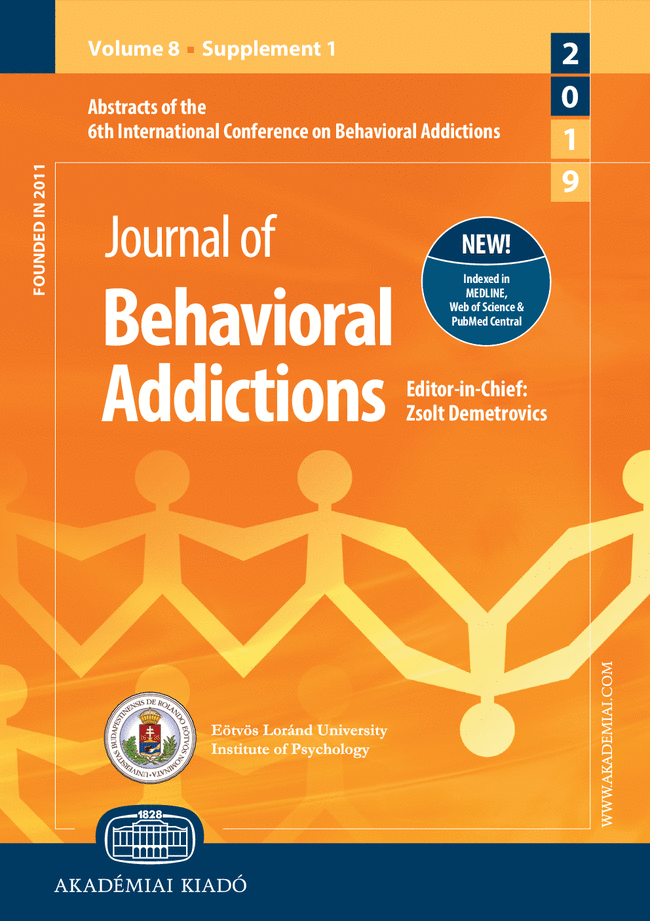Reducing compulsive Internet use and anxiety symptoms via two brief interventions: A comparison between mindfulness and gradual muscle relaxation
Reducing compulsive Internet use and anxiety symptoms via two brief interventions: A comparison between mindfulness and gradual muscle relaxation
Author(s): Cristina Quinones, Mark D. GriffithsSubject(s): Behaviorism
Published by: Akadémiai Kiadó
Keywords: randomized controlled trial; mindfulness; gradual muscle relaxation; compulsive Internet use; anxiety and depression; always-on-culture
Summary/Abstract: Background. Compulsive Internet use (CIU) refers to those individuals who experience a loss of control regarding their online use. Although suffered by a minority, a much larger proportion of adults report to be experiencing early signs of CIU, which can become more problematic if sustained over time, especially when used as a coping mechanism for stress. Since compulsive behaviors are characterized by executing behaviors on “automatic pilot,” mindfulness techniques, which help individuals relate more consciously with their environment, could help develop a more adaptive relationship with technology. However, mindfulness interventions are often lengthy hence not ideal for busy individuals with early signs of CIU. Aims. This study tested the effectiveness of a brief mindfulness intervention (10 min a day for 2 weeks) to reduce CIU and anxiety and depression symptoms, in relation to an equivalent length classic arousal descending technique (i.e., gradual-muscle-relaxation), and a wait-list control group. Methods. A randomized controlled trial (RCT) was used with assessments at pre- and post-phases. Participants showing initial signs of CIU were allocated to a mindfulness-group (n = 343), gradual-relaxation (n = 301), or a wait-list control group (n = 350). Results. The mindfulness and gradual-muscle-relaxation participants were equally effective in reducing anxiety and depression. The mindfulness intervention was more effective reducing CIU symptoms. Discussion. Given the large sample sizes of this RCT, these results are promising, although follow-up studies are needed. Considering health hazards of the “always-on-culture” and the popularity of bite-sized learning, the effectiveness of easy-to fit-in daily life health practices is a positive development.
Journal: Journal of Behavioral Addictions
- Issue Year: 8/2019
- Issue No: 3
- Page Range: 530-536
- Page Count: 7
- Language: English

